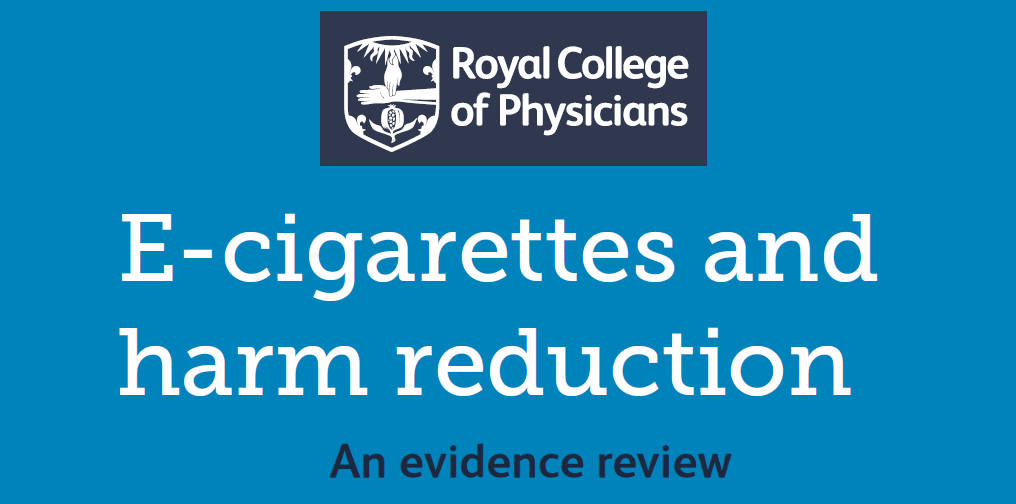
Promote vaping as an effective quitting aid – UK RCP
Posted on April 20, 2024 By Colin
IN ITS LATEST COMPREHENSIVE REPORT, the prestigious UK Royal College of Physicians recommends that vaping nicotine should be promoted as an effective quitting aid, and that vaping poses only a small fraction of the risk of smoking.
The approach recommended is in stark contrast to Australia’s prohibitive approach. In Australia, there are substantial barriers to access by adult smokers and the risks of vaping are typically exaggerated.
Some of the key findings of the report are:
Effectiveness
- E-cigarettes with nicotine are more effective at helping people quit for 6 months or longer than nicotine replacement therapy. The best available evidence suggests that nicotine e-cigarettes and varenicline (Champix) are equally effective.
- The use of e-cigarettes in quit attempts appears to have helped in the region of 30,000–50,000 additional smokers to quit successfully each year in England since 2013.
- Vapes are the most popular quitting aid in the UK, but are are underutilised. This represents a large, missed opportunity to reduce morbidity and premature mortality from smoking.
Safety
- Vaping exposes vapers to a far narrower range of toxins than does smoking cigarettes, and levels of toxins absorbed from vaping are generally low. It is therefore likely that vaping poses only a small fraction of the risk of smoking.
- Vaping nicotine is not associated with a high frequency of adverse health effects.
- Current evidence suggests nicotine itself confers little risk to health. Most of the harm from smoking is caused by products of combustion.
- Secondhand exposure to vapour resulted in a marginal increase in nicotine levels in bystanders in one study, but all other chemicals tested were not increased, with one exception, Interleukin-1 beta (an inflammatory marker).
Flavours
- "A range of flavours should be available to facilitate quitting"
- Flavours can encourage the uptake of e-cigarettes to quit smoking and are associated with increase smoking cessation in adults.
- Modelling suggests that restricting flavours could disproportionately lead to more people continuing to smoke or relapsing to smoking.
- Surveys suggest the appeal of flavours is not the main reason why young people who have never smoked start vaping.
Health professionals
- "In all healthcare settings, trained specialists should offer support for smoking cessation using e-cigarettes and other evidence-based therapies"
- As in Australia and despite the evidence, “a high proportion of health professionals report that they would not advise their patients to use e-cigarettes due to concerns about addiction and uncertainty about long-term harms”.
Regulation
- Increased measures to curb youth vaping are needed but should not undermine the use of vapes by adult smokers. By contrast, policy in Australia is driven by minimising youth vaping, creating substantial barriers for access by adult smokers.
Report
Royal College of Physicians. E-cigarettes and harm reduction. Full Report 2024
Royal College of Physicians. E-cigarettes and harm reduction. Executive Summary 2024